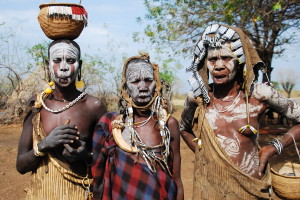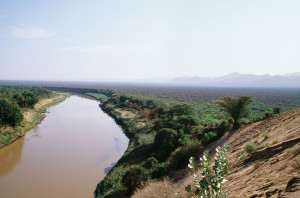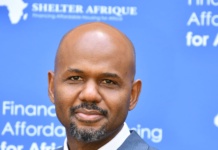Western development assistance headed by the UK and US is supporting forced evictions and massive violations of human rights in Ethiopia, says the Oakland Institute, an independent policy think tank based in California.
In two new reports published this week, “Development Aid to Ethiopia: Overlooking Violence, Marginalization, and Political Repression” and “Ignoring Abuse in Ethiopia: DFID and USAID in the Lower Omo Valley,” the think tank outlines how the Ethiopian government’s controversial “villagization” resettlement program to clear vast areas for large-scale land investments is funded largely by international development organizations.
“Development Aid to Ethiopia” proposes direct links between Western development aid – an average $3.5 billion a year, equivalent to 50 to 60% of Ethiopia’s national budget – and industrial projects that violate the human rights of people in the way of their implementation.
The report also argues that indirect support in the form of funding for infrastructure, such as dams for irrigation and electricity for planned plantations, likewise plays a role in repressing local communities by making the projects viable.
The think tank’s “Ignoring Abuse in Ethiopia” goes further, describing routine violence and coercion.
According to the report, the massive resettlement of 260,000 people of many different ethnic groups in the Lower Omo Valley – a UNESCO World Heritage site – has been fraught with controversy and has raised considerable alarm among international human rights groups.
Information around forced evictions, beatings, killings, rapes, imprisonment, intimidation and political coercion, has been shared with the Oakland Institute, and these tactics have been documented by the think tank as tools used in the resettlement process.
The report contains a number of first-person accounts from local people, many of which contradict those found by the reports made by Western development agencies, such as the United States Agency for International Development (USAID), which called the allegations of human rights abuses “unsubstantiated.”
“[The soldiers] went all over the place, and they took the wives of the Bodi and raped them, raped them, raped them, raped them. Then they came and they raped our wives, here,” said one Mursi man interviewed during the investigation.

Another man interviewed in the report added: “the Ethiopian government is saying they are going to collect us all and put us in a resettlement site in the forest. We are going to have to stay there. What are the cattle going to eat there? They are our cattle, which we live from. They are our ancestor’s cattle, which we live from. If we stay out there in the forest, what are they going to eat?”
In a press release, the Oakland Institute said: “It is worrisome that aid agencies rubber stamp development projects that are violating human rights. Worse, they have chosen to ignore the results of their own investigations.”
The Oakland Institute is an independent policy think tank whose stated aim is to increase public participation and “promote fair debate” on social, economic, and environmental issues.
As of 2011, the Institute has unveiled a number of land investment deals in Africa that reveal what it calls “a disturbing pattern of a lack of transparency, fairness, and accountability”.
Speaking about the latest reports, Anuradha Mittal, Executive Director of the Oakland Institute said: “Bottom line, our research shows unequivocally that current violent and controversial forced resettlement programs of mostly minority groups in Ethiopia have US and UK aid fingerprints all over them.
“It’s up to the officials involved to swiftly reexamine their role and determine how to better monitor funding if they are indeed not in favor of violence and repression as suitable relocation techniques for the development industry.”
The UK government has denied that aid money is being used to force people from their homes.
“Our assistance has helped millions of people in Ethiopia, a country that has suffered famine and instability over many decades,” read a statement by the UK’s Department for International Development (DFID).
“We condemn all human rights abuses and, where we have evidence, we raise our concerns at the very highest level. To suggest that agencies like DFID should never work on the ground with people whose governments have been accused of human rights abuses would be to deal those people a double blow.”
The Ethiopian government has said it has been relocating people so it can develop the area and provide better services.
Its plan is to create sugar plantations in the Lower Omo Valley area which will be irrigated in part by its Gigel Gibe III hydropower project. The dam, which is set to be the largest in Africa and fourth in the world, has already caused much controversy.
The Ethiopian government says that the project must be completed in order to bring energy and development to the country.
Yet campaigners claim it will jeopardise already scarce water resources, and rob the indigenous communities of their livelihoods. They say the Lower Omo Valley is one of the most ecologically and culturally diverse areas in the world and home to eight different agro-pastoral communities.
In 2010 then-prime minister of Ethiopia Meles Zenawi said of those criticising the project: “They don’t want to see developed Africa; they want us to remain undeveloped and backward to serve their tourists as a museum.”










